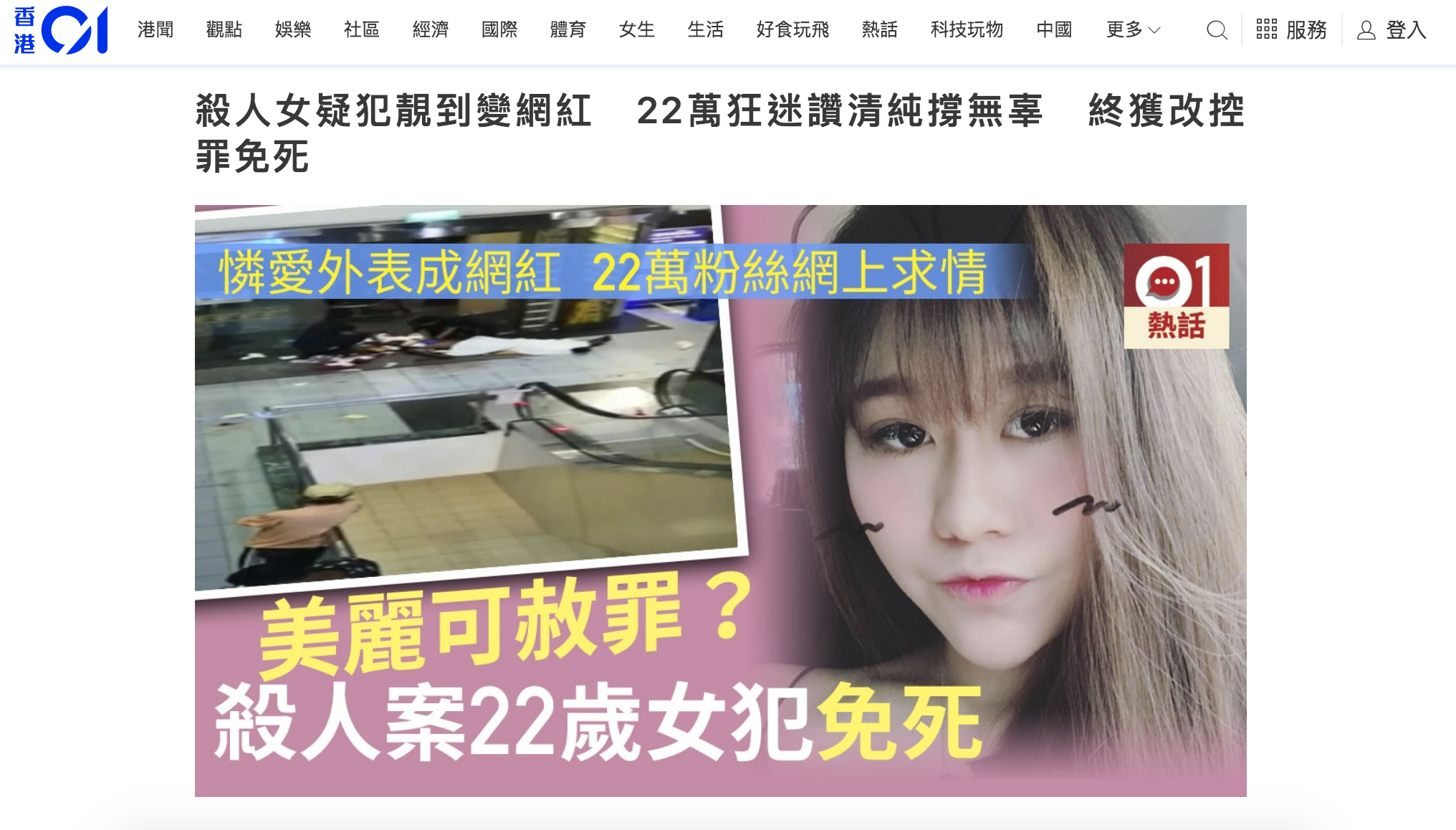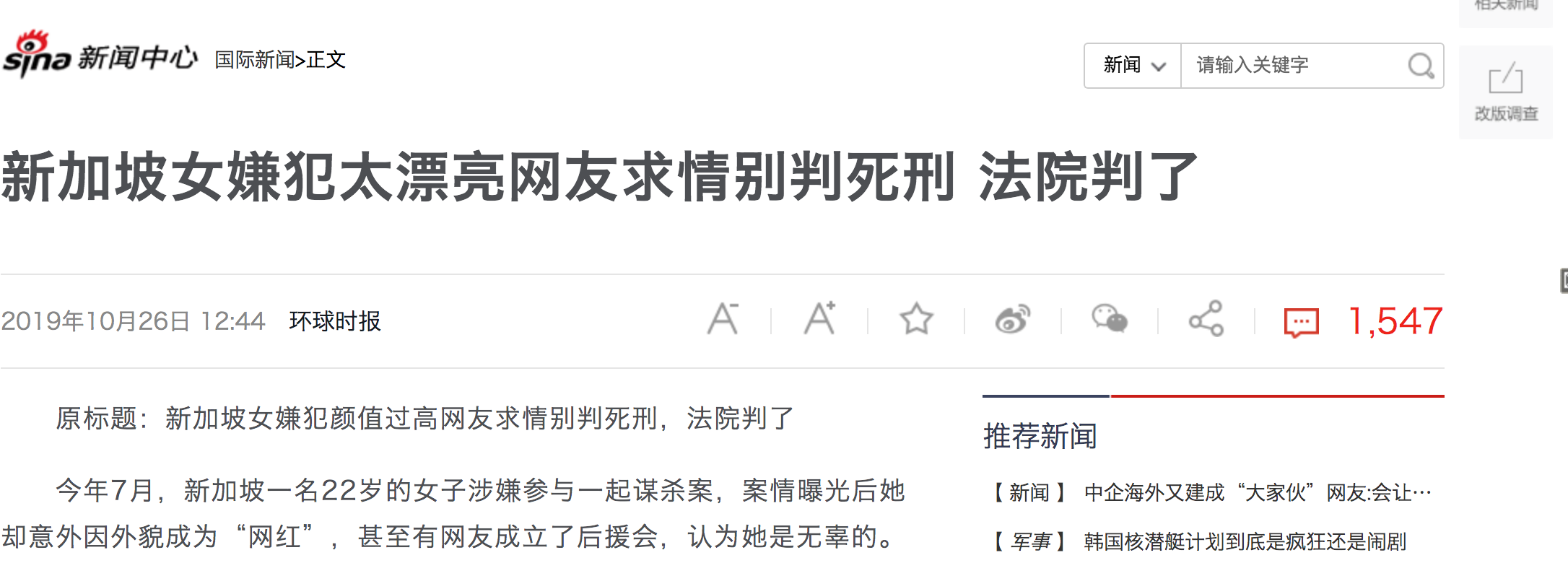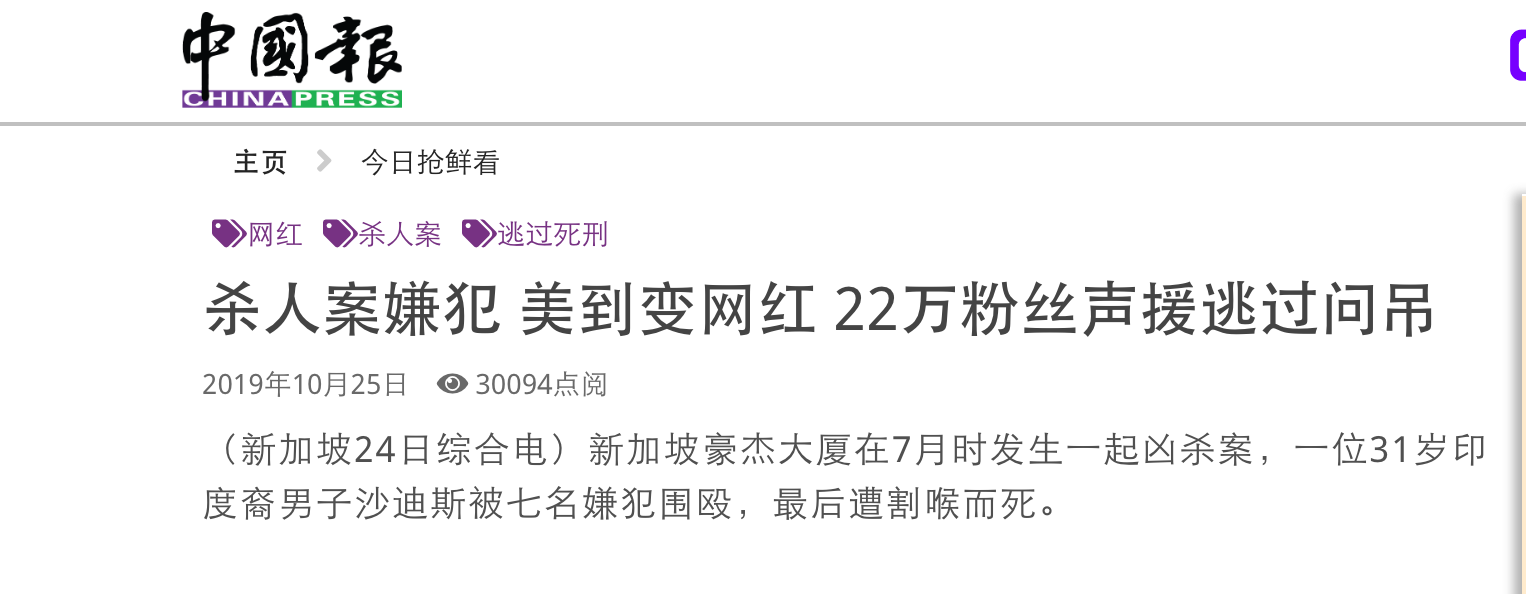Foreign media are having a field day reporting on the Orchard Towers murder case that is before the Singapore court now and casting aspersions on the country's legal process.
The focus of their reporting?
They are collectively saying that Natalie Siow Yu Zhen, 23, the only woman linked to the high-profile case, escaped the death penalty because of her looks.
Let off because of looks
Shin Min Daily News highlighted this narrative on Oct. 26, after several Chinese media reports from overseas have claimed that Siow had been cleared of a murder charge punishable by death because of her appearance.
Shin Min's front page headline said Siow's lawyer rubbished such claims.
 via Shin Min Daily News Facebook
via Shin Min Daily News Facebook
Media outlets that have ran along with this narrative include those from China, Taiwan, Hong Kong, and Malaysia.
The reports mainly attributed the reduction in Siow's charges to an alleged fan club set up for the accused following the alleged murder at Orchard Towers.
Not only is this reporting of the court proceedings incorrect, the various media even said some 220,000 fans of Siow rallied behind her because of Siow's "innocent" and "pure" appearance.
This "220,000" figure is a mischaracterisation of the number.
It was previously reported that a forum thread couched as a fan club for Siow had received more than 220,000 views within a day.

The Chinese news reports then claimed that because of this amount of public support, she became an internet sensation and was cleared of the murder charge.
Here are some examples of foreign news about Siow:

Headline: "Female murder suspect allegedly becomes an influencer because of her beauty, 220,000 fans praise her for looking innocent and give support, charges changed and escaped death sentence."

Headline: "Singapore's female suspect was too pretty, netizens appeal to not sentence her to death and the court gives in"

Headline: "Murder suspect becomes an influencer because of her beauty, 220,000 fans appeal and help her escape from death sentence"

Headline: "Long-legged girl allegedly involved in murder case [too pretty and becomes an influencer]... 220,000 fans support her fully and she really escapes from death sentence"
A few of these outlets attached a screenshot of a HardwareZone thread titled "[OFFICIAL] NATALIE SIOW YU ZHEN FAN CLUB" in their reports:

Siow's lawyer refuted foreign media's claims
Shin Min reached out to Siow's lawyer Amarick Gill for comments to respond to these reports.
In response, Gill refuted these claims as baseless as they obviously go against the integrity of the law.
He added that the public prosecutor considered various factors before coming to the decision to amend the murder charge to assault.
CCTV footage would have been considered as evidence during investigations, and Siow's intent would have been judged based on the evidence.
The decision was not affected by the so-called "public support", the lawyer said.
Background
Siow had her murder charge reduced to assault on Oct. 18.
She was then slapped with fresh charges on Oct. 25.
The Orchard Towers murder case has attracted widespread public attention.
So much so that Siow has even thanked her supporters after she was released from a four-month remand.
Such news contravene Singapore law?
Since the Protection from Online Falsehoods and Manipulation Act (POFMA) has come into effect since Oct. 2, 2019, any fake news put out about Singapore might be considered a breaching of the law.
Under section 7 of the POFMA, a person must not commit any acts, whether in or outside of Singapore, to communicate a statement which that person knows or has reason to believe that it is a falsehood, and the communication of that falsehood in Singapore is likely to:
• Be prejudicial to Singapore’s security;
• Be prejudicial to public health, public safety, public tranquillity or public finances;
• Be prejudicial to the friendly relations of Singapore with other countries;
• Influence the outcome of a presidential election, general election, by-election or referendum;
• Incite feelings of enmity, hatred or ill-will between different groups of persons; or
• Diminish public confidence in the government.
If you like what you read, follow us on Facebook, Instagram, Twitter and Telegram to get the latest updates.
